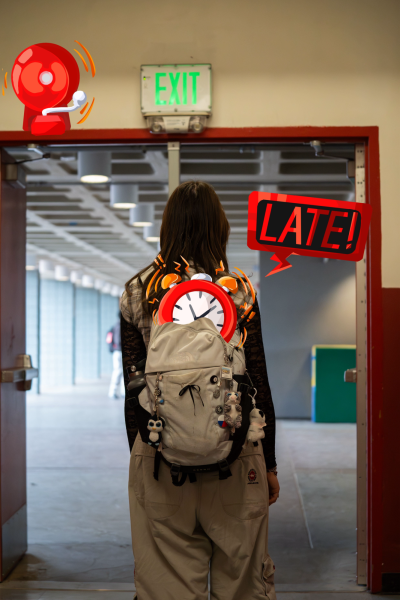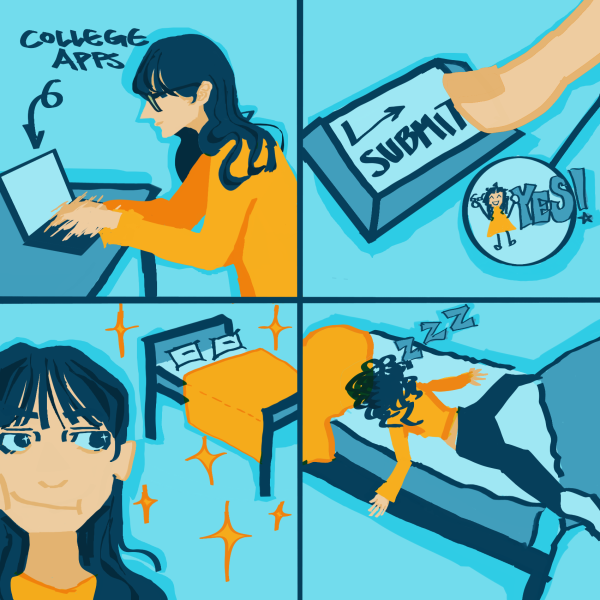To Wellness: 15 minutes isn’t enough
One of the places that Lowell students turn to during difficult times is the Wellness Center. With the many stresses of high school life, students need a safe, sheltered environment to relax in. However, in the beginning of the 2021-2022 school year, a new policy was introduced that restricts usage of the Wellness Center to 15 minutes most days and 10 minutes on Wednesdays, down from an unlimited amount of time.
By placing a time limit on Wellness breaks, the health and wellness of students is not being prioritized. This time restriction negatively impacts the Lowell student body, failing to provide them with crucial support. We cannot support such a policy and believe the 15-minute limit should be removed.
This restriction is not only harmful to students, it is also without a known cause. There are no publicized reasons behind the implementation or continuation of this policy. When we asked what drove this policy, Wellness staff declined to speak on the topic.
This time limit may have been established in order to keep students in class. If students are allowed unlimited time excused, some students might abuse the Wellness Center to skip their classes. In doing this, they wouldn’t be appropriately utilizing the Wellness Center or its provisions, as well as not attending their classes. Having this limitation in place prevents this truancy.
However, many students don’t attend their classes regardless of the shortened break. This failure to improve attendance records invalidates the purpose of this restriction. After spending 15 minutes in the Wellness Center, students are often still not fully prepared to return to their classes. If students are not going back to their classes after their time in the Wellness Center, there is no point in preventing them from staying longer. Junior Catherine Perez says that 15 minutes can be helpful, but afterwards they often still don’t feel well enough to return to class. They have depression which can cause the classroom atmosphere, with assignments and dozens of other students, to be overwhelming. Thus, they opt to stay out of classes and roam the halls. The time limit restriction is essentially pointless if it is not encouraging students to stay in their classes. Even if some students take advantage of the Wellness Center, it is vastly more important to have the space available for students who need it.
Along with this, 15 minutes simply isn’t enough time to discuss personal issues, which should be a priority at the Wellness Center. It is difficult for students to open up on a personal level when having serious discussions with someone that they are not especially close to. Forming that relationship takes time, time that eats into the short 15 minutes that students have to discuss their issues with Wellness counselors. Rather than enforcing a time limit, the school should allow students to take as much as they need time to work through their issues in what they feel is a safe space.
Additionally, at Lowell, the Wellness Center is one of the few places on campus where students go to rest when they feel physically ill. Students may experience sleep loss and would feel relief in having somewhere to go and relax. The 15-minute restriction takes away this opportunity as students are no longer able to rest in the Wellness Center when they are feeling unwell. A common cause of poor health is sleep loss. When it comes to sleep schedules, Lowell students typically fare pretty poorly. In a survey conducted by The Lowell, 83.8 percent of students reported that they get seven or less hours of sleep, which is significantly less than the recommended eight to ten hours for teenagers.
Many students also experience a menstrual cycle, which can cause painful cramps. When experiencing physical pain most would prefer to be somewhere comfortable, a provision that is eliminated by this 15-minute policy. Student’s functionality is also decreased while they aren’t feeling their best, reducing the benefit of attending classes. It would be healthier and not significantly less productive for them to have somewhere else to stay aside from just their classes. Under the limiting conditions of this policy, the Wellness Center can no longer serve as a comfortable place for students to rest and address their personal needs.
Wellness visits should no longer have time restrictions. Students should be allowed to have longer Wellness breaks as limiting them to 15 minutes is detrimental to their health and ineffective at making students return to class. If student health, both mental and physical, is to seriously be taken into account, things have to change. The eradication of this restriction, or at the very least an extension to it, would be a step in the right direction.










